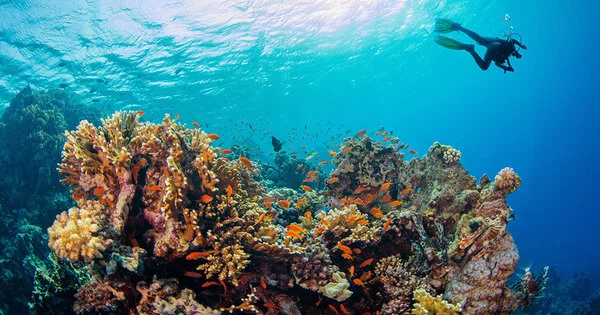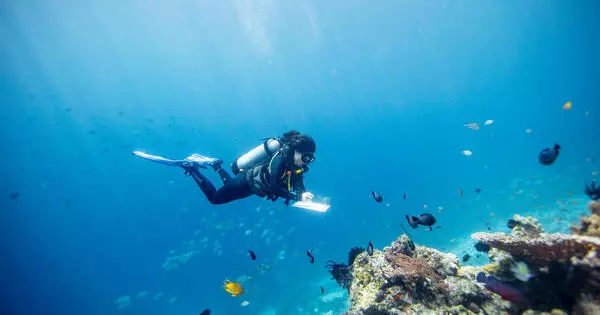An international group of environmental scientists has issued a set of key suggestions to protect, conserve, and study the world’s coral reefs, which have been dubbed the “canaries in the coal mine” of climate change.
On Thursday, the Vibrant Oceans Initiative presented its white paper on the future of sensitive and critical habitats at the Our Oceans Conference in Palau.
The group provides six essential recommendations to enhance the “persistence and survival” of coral reefs, drawing on experience from universities and animal conservation groups around the world, including the University of Leicester.
Forecasts indicate that coral reef ecosystems around the world—vital to a vast number of marine species and a source of food, livelihoods, and cultural heritage for half a billion people—will be functionally damaged by 2050 if the Paris Agreement’s targets are not fulfilled.

Even if emissions are drastically reduced to keep global warming to 1.5 °C over pre-industrial levels, up to 90 percent of the world’s corals might disappear in the next three decades, leaving behind a reef structure that would lose many of its functions.
Jens Zinke is a Professor of Palaeobiology at the University of Leicester, and his study focuses on huge coral habitats to trace environmental and climate change over the previous three centuries and into the present. Professor Zinke stated of the report, of which he is a co-author:
“When it comes to perceiving ecosystems under stress from ocean warming caused by climate change, coral reefs are the “canaries in the coal mine.”” Corals can detect when ocean temperatures exceed a harmful level and alert us when action is required.
“Our research has revealed that coral reefs have been significantly harmed by ocean warming over the last three to four decades, despite the fact that some reef locations show lower rates of warming or benefit from mitigating circumstances due to local oceanography.”
“Coral reefs are the ‘canaries in the coal mine’ when it comes to sensing ecosystems under stress from ocean warming due to climate change. Corals can sense when ocean temperatures exceed a dangerous threshold and warn us when we need to take measures.
Professor Zinke said
“Some reefs are more resistant to or recover from thermal stress than others, and these reefs may act as sanctuaries in the face of future warming.” This is a significant new study direction-locating and protecting those areas before they are lost.
The Vibrant Oceans organization chose 50 reefs in 2018 that are most likely to fight and survive climate change. The habitats are primarily found in the Pacific and Indian oceans, with additional reefs found in the Caribbean and east of Africa.

Previously, the 50 reefs were mostly picked in areas that had evaded the effects of climate change. The scientists now advocate for a broader portfolio of reefs that includes resistant and fast-recovering reefs.
The newest suggestions from the group, as given in the white paper “Forecasting Climate Sanctuaries for Securing the Future of Coral Reefs,” are as follows:
- continued use of the 50 Reefs strategy as “climate change avoidance sanctuaries” as a priority for coral reef conservation expenditure.
- expansion of the 50 Reefs climate change conservation portfolio to include coral resilience and recovery sanctuaries.
- increased assistance for regional assessments of the health of the 50 Reefs portfolio, as well as long-term financing measures to aid in the execution of regional portfolios.
- catalyzing large-scale, data-driven coral reef monitoring operations to test and build new climate sanctuary models and projections.
- Use the most recent climate change coral reef science to guide investments, particularly as the effects of climate change accelerate and cause unique environmental pressures and responses among reefs.
- Taking a wide approach to managing 50 reef sites, including ties to larger seascapes and fisheries
The complete report, titled “Forecasting Climate Sanctuaries for Securing the Future of Coral Reefs,” is available from the Wildlife Conservation Society (WCS).
Bloomberg Philanthropies provided funding for the inaugural Vibrant Oceans study, while Oceans 5, the Paul G. Allen Family Foundation, and Tiffany & Co. Foundation continue to support ongoing conservation efforts.
WCS, Rare, The Nature Conservancy, Blue Ventures, and the Conservation Ecosystem Partnership Fund are among the conservation partners.





